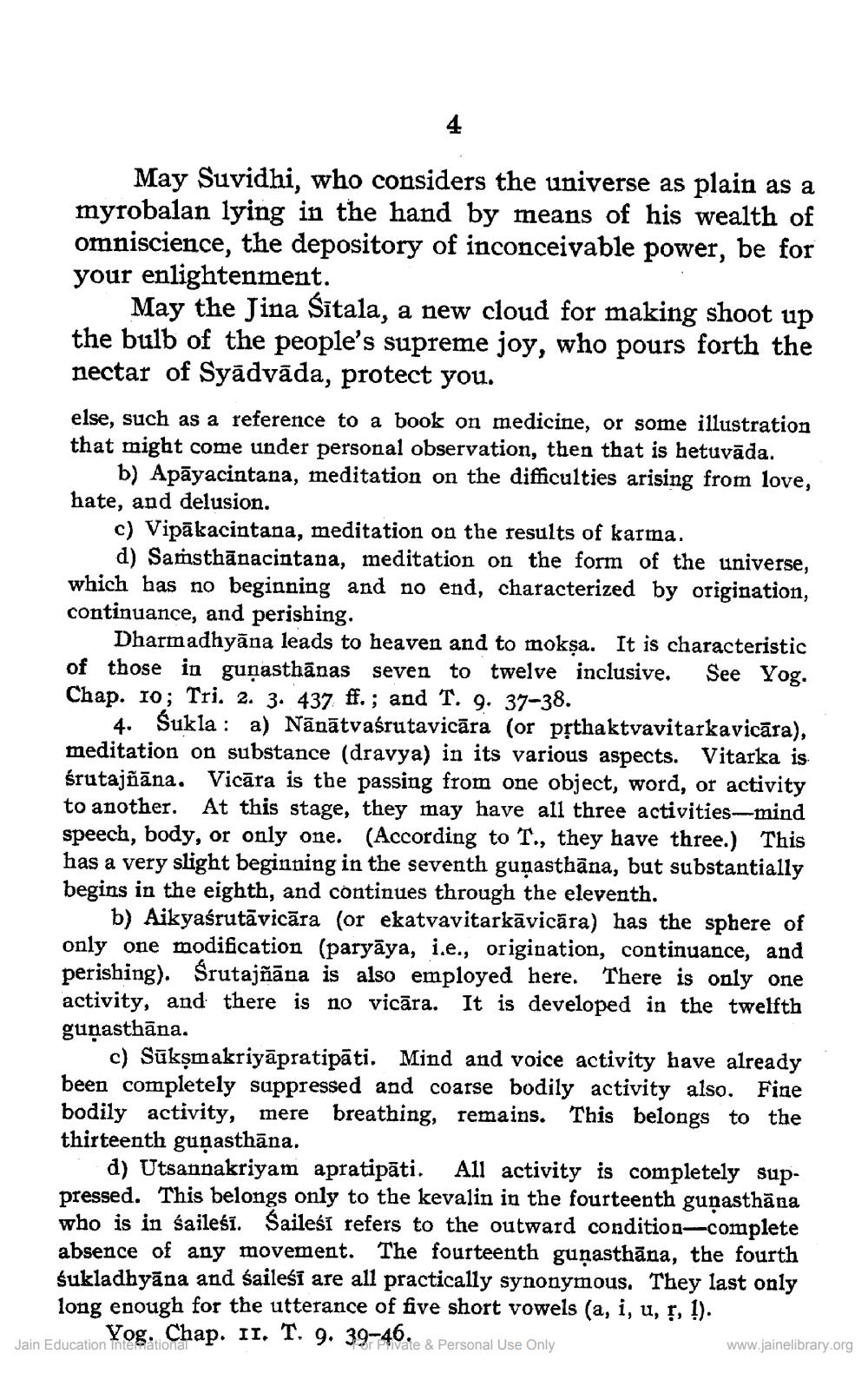________________
May Suvidhi, who considers the universe as plain as a myrobalan lying in the hand by means of his wealth of omniscience, the depository of inconceivable power, be for your enlightenment.
May the Jina Śītala, a new cloud for making shoot up the bulb of the people's supreme joy, who pours forth the nectar of Syādvāda, protect you. else, such as a reference to a book on medicine, or some illustration that might come under personal observation, then that is hetuvāda.
b) Apāyacintana, meditation on the difficulties arising from love, hate, and delusion.
c) Vipākacintana, meditation on the results of karma.
d) Samsthānacintana, meditation on the form of the universe, which has no beginning and no end, characterized by origination, continuance, and perishing.
Dharmadhyāna leads to heaven and to mokşa. It is characteristic of those in guņasthānas seven to twelve inclusive. See Yog. Chap. IO; Tri. 2. 3. 437 ff. ; and T. 9. 37-38.
4. Sukla : a) Nānātvaśrutavicāra (or pşthaktvavitarkavicāra), meditation on substance (dravya) in its various aspects. Vitarka is. śrutajñāna. Vicāra is the passing from one object, word, or activity to another. At this stage, they may have all three activities--mind speech, body, or only one. (According to T., they have three.) This has a very slight beginning in the seventh gupasthāna, but substantially begins in the eighth, and continues through the eleventh.
b) Aikyaśrutāvicāra (or ekatvavitarkāvicāra) has the sphere of only one modification (paryāya, i.e., origination, continuance, and perishing). Srutajñāna is also employed here. There is only one activity, and there is no vicāra. It is developed in the twelfth guṇasthāna.
c) Sūkşmakriyāpratipāti. Mind and voice activity have already been completely suppressed and coarse bodily activity also. Fine bodily activity, mere breathing, remains. This belongs to the thirteenth guṇasthāna.
d) Utsannakriyam apratipāti. All activity is completely suppressed. This belongs only to the kevalin in the fourteenth gupasthāna who is in śaileśī. Saileśí refers to the outward condition-complete absence of any movement. The fourteenth guṇasthāna, the fourth sukladhyāna and saileśí are all practically synonymous. They last only
long enough for the utterance of five short vowels (a, i, u, ș, 1). Jain Education Yog: Chap. II. T. 9. 39-46. 2r P ate & Personal Use Only
www.jainelibrary.org




